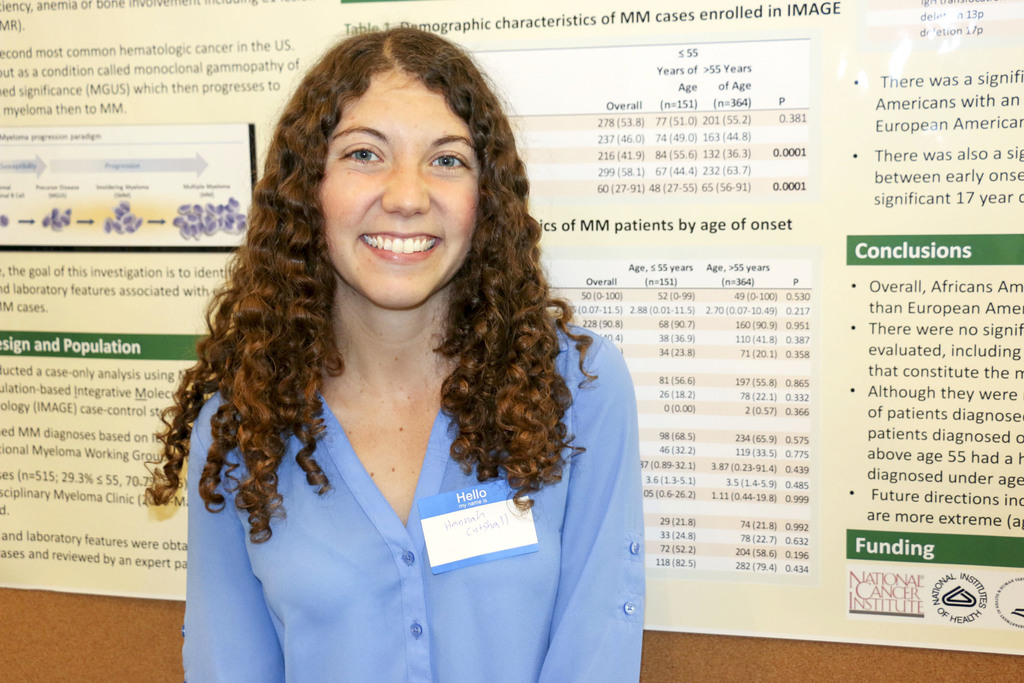UAB medical student Hannah Cutshall has been awarded a 2020 AΩA Carolyn L. Kuckein Student Research Fellowship, designed to foster the development of the next generation of medical researchers. Cutshall conducts research in the laboratory of Elizabeth Brown, Ph.D., M.P.H., Professor, Molecular and Cellular Pathology. Cutshall's award-winning proposal is titled, "Transcriptomatic Characterization of Multiple Myeloma." She will receive $5,000 to support her research project and up to $1,000 in travel reimbursement over a period of 1-2 years.

Cutshall says the goal of her study will be to test the overarching hypothesis that distinct transcriptomic signatures correlate with the presence of multiple myeloma (MM), that transcriptomic differences by cell type will facilitate the delineation of mechanisms involved in cell-mediated disease, and similarities observed across cell types will advance blood-based biomarker discovery. The plan is to test this hypothesis by conducting whole transcriptome mRNA analysis in peripheral blood obtained from 50 treatment naïve MM cases and age-, sex-, ancestry-, geography-, and 50 healthy matched controls. It will then be compared to whole transcriptome mRNA analysis in CD138+ bone marrow plasma cells from 1,000 MM cases in the CoMMpass study, a publicly available national database.
Cutshall says she expects a significant limitation of published sequencing in MM is the inclusion of a diverse population of patients, including both African Americans and European Americans, who are not treated for their disease. This may distort transcriptome-disease relationships, meaning the extensive characterization of treatment-naïve MM cases and population-based controls and availability of comprehensive epidemiological, clinical and laboratory data will facilitate a robust evaluation and interpretation of the extent to which the transcriptome influences the presence of MM, while minimizing false discovery.
Current clinical practices are based on monitoring bone marrow plasma cell percentages and M-protein levels. These parameters are challenging because of low frequency of presentation in early disease and the technical challenge of diagnosing by a bone marrow biopsy when MM is spatially heterogeneous. Thus, discovering new blood-based biomarkers with improvements in positive predictive value offer a significant advantage in time, cost, feasibility and minimizing risk to the patient (i.e., non-invasive, high-throughput) over the current paradigm.
Alpha Omega Alpha is the National Medical Honor Society. More than 4,000 students, residents/fellows, faculty, and alumni are elected each year. Since its founding in 1902, nearly 200,000 members have been elected to the society. Alpha Omega Alpha supports 13 fellowships, grants, programs, and awards for medical students and physicians at its 132 Chapters, and publishes a quarterly peer-reviewed, medical humanities journal The Pharos which contains articles on nontechnical medical subjects, including history, ethics, national issues, personal essays, and poetry.
Cutshall is one of 50 recipients of the award, selected from a national pool of applicants.